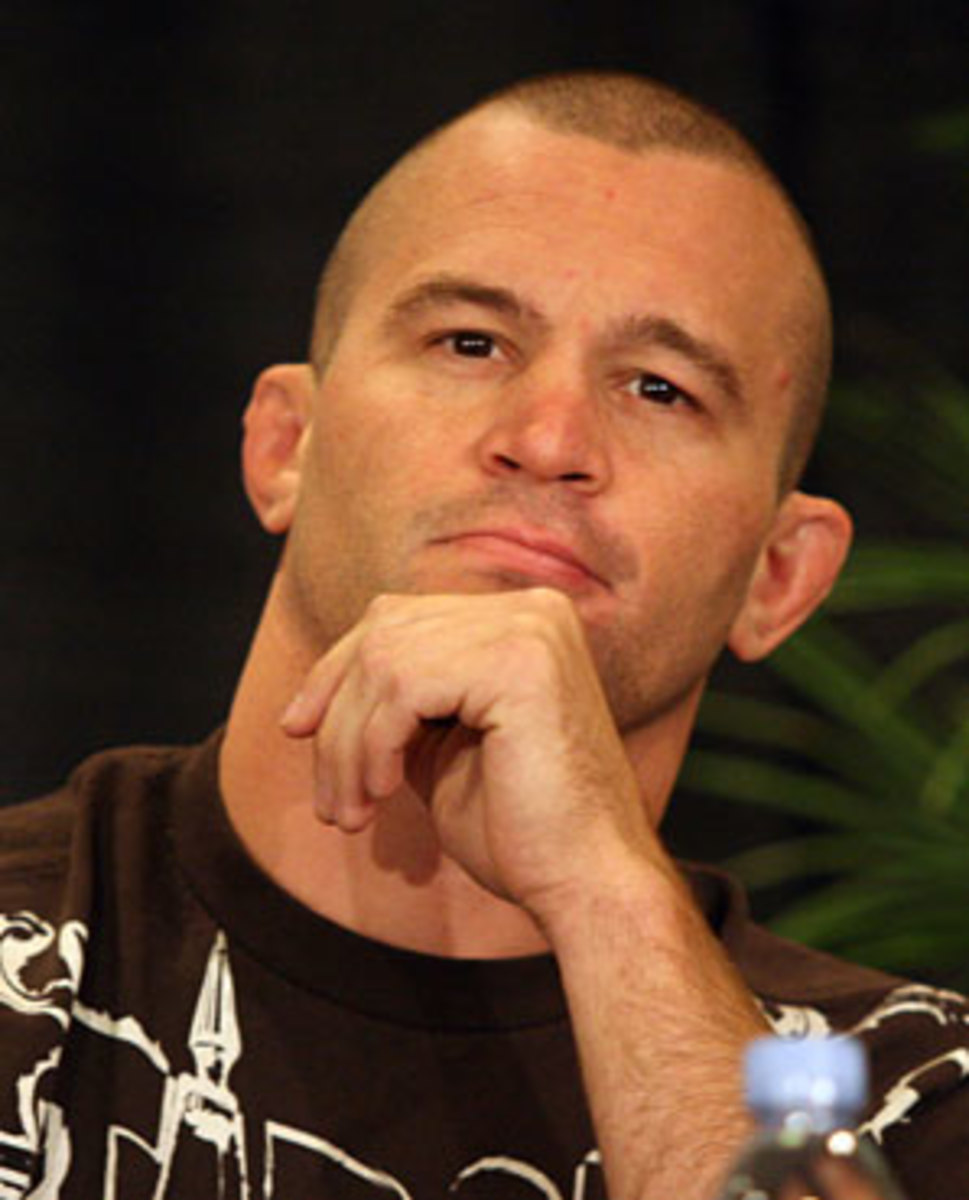Why this retired UFC contender would make a good state senator


When voters across the nation go to the polls on Tuesday, a former MMA standout could come out on top of the Indiana Senate republican primary. Retired UFC welterweight fighter Chris Lytle is one of the three candidates running in District 28, and while I can't tell you much about Lytle the aspiring politician, I can share a few things about Lytle the fighter.
More than 11 years ago, Lytle made his promotional debut at the first UFC event I ever attended in Atlantic City, N.J. He was an unknown name on the undercard; I was a writer-in-training from the stands, and we'd speak frequently over the years as our careers progressed in the sport.
Indirectly, it's Lytle's distinguished MMA career that opened his eyes to the needs of Indiana and ignited his wish to serve his community. In 2009, Lytle visited the state's legislature to talk about the sport as it contemplated the passage of MMA regulations. Indiana became the 39th state to legalize the sport, but Lytle wasn't encouraged by what he saw.
"I just didn't really feel that their interests were what was best for the general public," said the 37-year-old Lytle, who wants to keep jobs in the state to stimulate the local economy. "It was more about getting in power, staying in power and being self-serving, where the bills they passed directly benefited them and them alone."
It wasn't a surprise to hear that Lytle had decided to run for state Senate. In MMA, Lytle had a reputation for getting the job done. I remember back in 2003 when he first told me that he was a full-time fireman, a father of three (now four) and a pro fighter. It put him at a pretty big disadvantage; the "serious" fighters trained two times a day for six days a week and lived off their purses between bouts.
Lytle didn't have that luxury. He worked two 24-hour shifts each week for the Indianapolis Fire Department and squeezed in his training where he could. Sometimes he got some pad work and sparring in down at the firehouse, but a lot of his specialized training had to wait for his 48-hour, off-duty stretches. This made it seemingly impossible for Lytle to keep up with the other fighters, who seemed to get younger, faster and craftier with each passing show, but he never thought about giving up the fight game.
"I enjoyed the training. I enjoyed learning," said Lytle, a former high school wrestler and Indiana University graduate. "I just enjoyed the environment and the camaraderie. I was still competing. I'm a very goal-orientated person. I just wanted to go out there and succeed."
If he couldn't be the most learned fighter out there, Lytle made sure he was the most reliable. In the mid-2000s, Lytle stepped in last-minute for the UFC and other promotions so often, he became known for it. If you didn't want to worry about your late replacement's conditioning, you called Lytle. He didn't win every fight, but he was never a pushover. Lytle always posed a challenge and brought out the best in his opponents. In his 54-fight career, Lytle was never knocked out or submitted.
"I always prided myself on always being in shape. I never took time off," said Lytle. "I think people knew if they called me last minute that I'd come in prepared."
Lytle's work ethic is what eventually got him over the hump with UFC owners Zuffa LLC, who cast him alongside other comeback veterans for the fourth season of Spike TV's The Ultimate Fighter in 2006. Lytle got to the show's finale, but lost a split decision to Matt Serra and a crack at champion Georges St-Pierre a few months later. It was the closest Lytle would ever get to the UFC title.
Lytle proved his worth in other ways. There were never any contract disputes, holdouts or other dramas. He showed up where he was supposed to on time, performed his job and left at the end of the night with no complaints. He made time for the fans and the media, engaging both with his down-to-earth character and easy-going smile. He didn't let the sport's growing popularity go to his head and he always kept sight of his commitments. After a big UFC event, Lytle would be back at the firehouse come Monday morning.
Lytle never trash-talked his opponents or artificially inflated his personality to get more attention. He preferred that his fights did the talking, and because Lytle worked at it that much harder to keep up with the rest of the pack, he got very good at delivering action-packed tilts over the years. From 2007 on, Lytle earned an additional $515,000 in performance bonuses over 10 UFC appearances -- a record within the promotion.
In July 2011, Lytle told reporters that his 20th fight in the octagon that August would be his last. Knowing Lytle, he probably gave fair warning to avoid any unnecessary fanfare come fight night, but by then, fans had come to appreciate Lytle just as much as he valued their support. And in true Lytle form, his final bout against British striker Dan Hardy was the highlight of the night.
Chris Lytle was never a UFC champion, but he worked just as hard as one. It's unheard of for a fighter to hold down a full-time job and remain a top-level competitor, but Lytle did it for 10 years. Along the way, he earned tremendous respect for his drive, reliability, honesty and professionalism.
